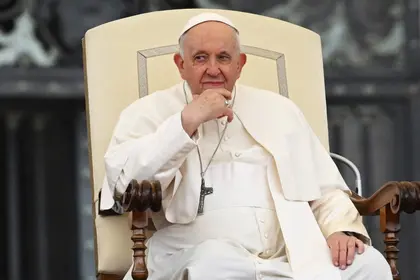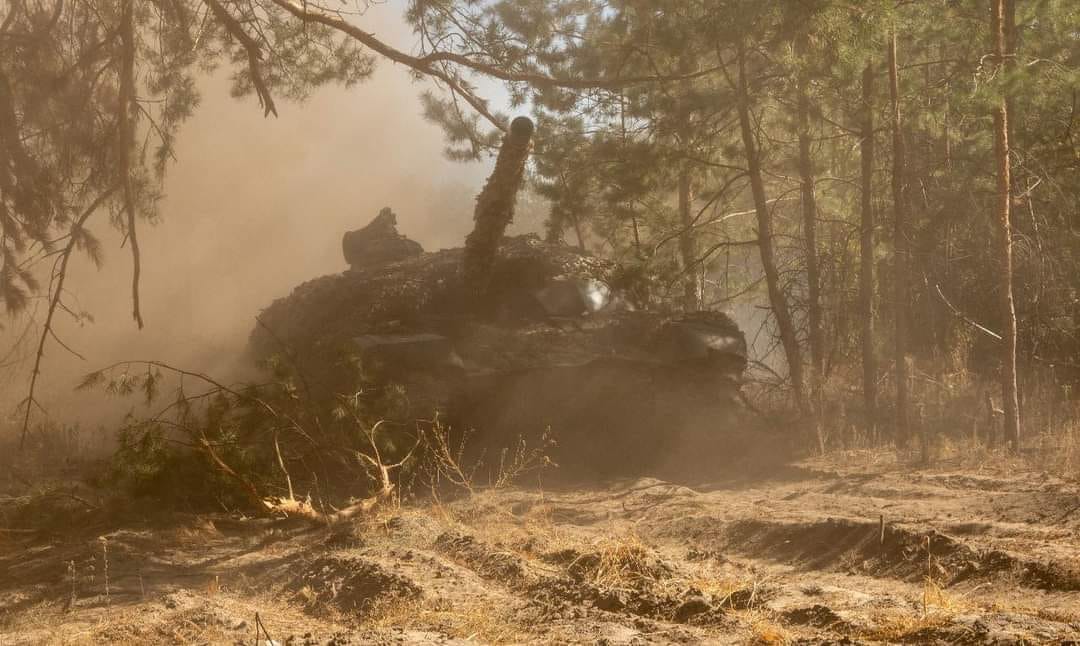The Vatican is working to send peace envoys to Kyiv and Moscow in an effort to negotiate a settlement to Russia’s war against Ukraine, Il Sismografo, a well-connected Italian blog specializing in Vatican news reported.
On April 30, the Pope first hinted at possible secret peace talks while on a plane ride back from his three-day visit to Hungary. Speaking to the press traveling with him, the Pontiff said: “Everyone is interested in the path of peace. I am willing, I am willing to do whatever needs to be done. Even now a mission is underway, but it’s not public yet, we’ll see...”
JOIN US ON TELEGRAM
Follow our coverage of the war on the @Kyivpost_official.
“When it’s public, then I’ll speak about it.”
Both Kyiv and Moscow denied any such mission. But that denial was clarified on May 10 by Cardinal Pietro Parolin, the Vatican’s secretary of state: “They have not denied it. They said they knew nothing, but then both sides were contacted, and it was clarified that it had been a misunderstanding.”
Several day later, on May 13, Ukrainian President Volodymyr Zelensky visited Rome and met with Pope Francis.
According to Il Sismografo, the governments of Ukraine and Russia have replied to the Vatican and declared their availability in principle. At the same time, they posed some sticky questions. First, they asked to clarify whether there would be two envoys, one to each country, or only one envoy. Both parties also requested the identity of any envoys, presumably to do background checks.

Poland Scrambles Jets During Russia’s Missile Attack on Ukraine
At this junction, Il Sismografo reports, there are preliminary agreements on the names of Cardinal Matteo Zuppi (Archbishop of Bologna and President of the Italian Episcopal Conference) to Kyiv and Archbishop Claudio Gugerotti (Prefect of the Dicastery for the Eastern Churches) to Moscow.
Neither of the two names have been confirmed. Both must still be approved.
President Zelensky and his Russian counterpart Vladimir Putin are said to have agreed to talks with the Pope’s two special envoys, to discuss and achieve some sort of ceasefire.
However, it is no secret that any “ceasefire” in the near future is a non-starter for Kyiv. Ukraine cannot accept any truce because it would “freeze” Russia’s territorial conquests since 2014 and especially the gains since the full-scale invasion of February 2022, which gave Russia a land corridor from Crimea and denied Ukraine access to the Sea of Azov.
Moscow, for its part, wants a ceasefire as soon as possible because it would allow its beleaguered forces to catch their breath before Ukraine’s imminent counteroffensive.
In short, it’s unlikely any talk of a ceasefire has a chance of success in the near term.
Further into the future, peace talks would certainly need to address the issue of territorial integrity. Zelensky has always stressed that defending Ukraine’s territorial integrity is his top priority.
Ukrainian Foreign Minister Dmytro Kuleba’s recent comment to Chinese envoy Li Hui, who is trying to mediate between Moscow and Kyiv, about non-negotiable territorial integrity, “were meant to be peremptory,” il Sismografo says.
Ukrainians have so far been disappointed by what appears from Kyiv’s perspective to be a Vatican stance verging on false moral equivalence – equating the victim, Ukraine, with Russia, the aggressor.
On May 17, Vatican Secretary of State Pietro Parolin spoke at the Council of Europe Summit in Reykjavik, Iceland, and adjusted the Church’s line, speaking of “just peace” rather than ceasefire.
“Together with Pope Francis we should ask, together with Ukraine, how to create peace,” Paroling said. “We cannot passively accept that a war of aggression continues in that country. It is the Ukrainian people who are dying and suffering. It is time to take initiatives to create a just peace in Ukraine… I guarantee you that the Holy See will continue to do its part.”
You can also highlight the text and press Ctrl + Enter






